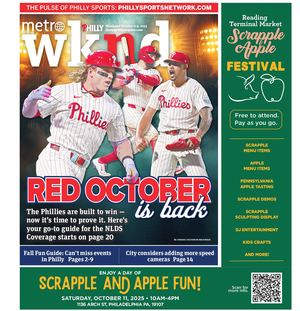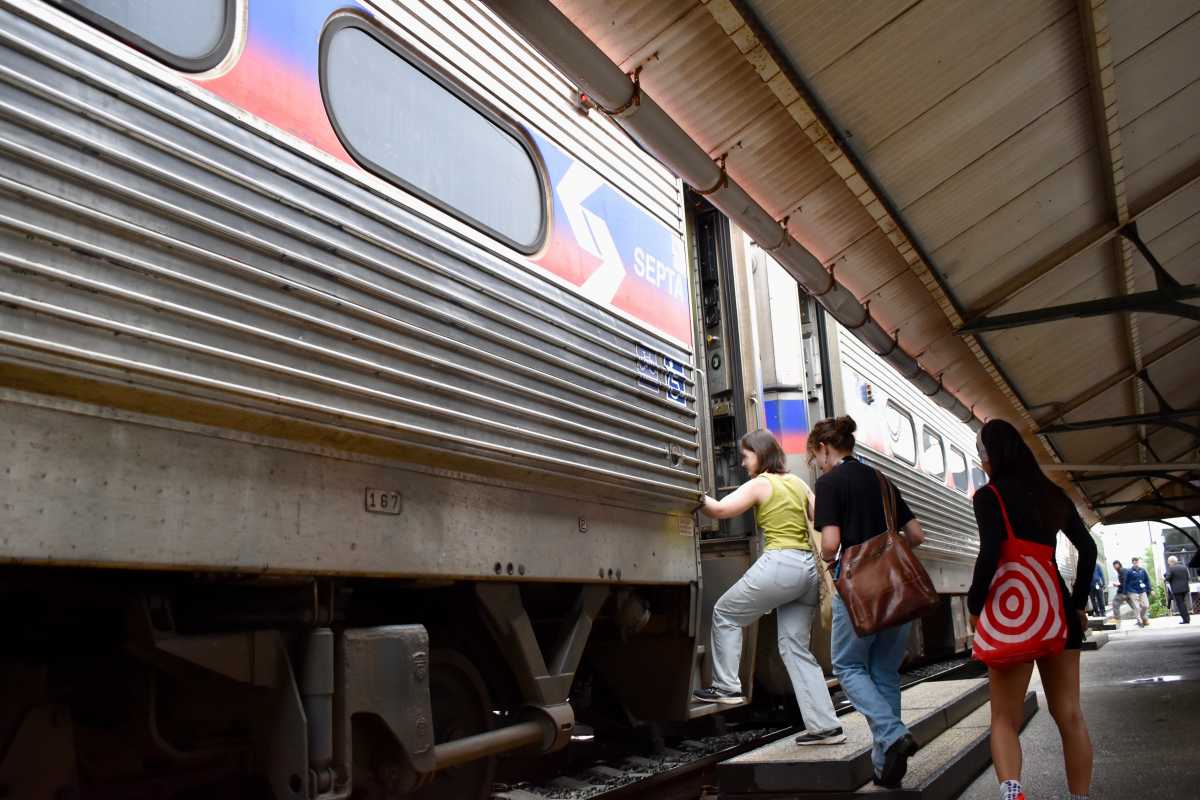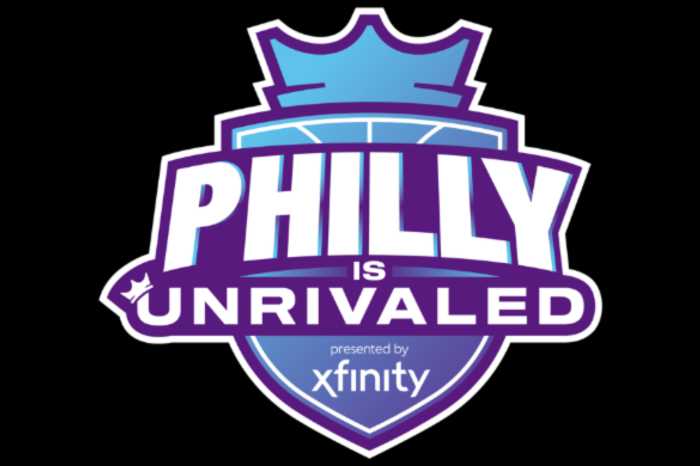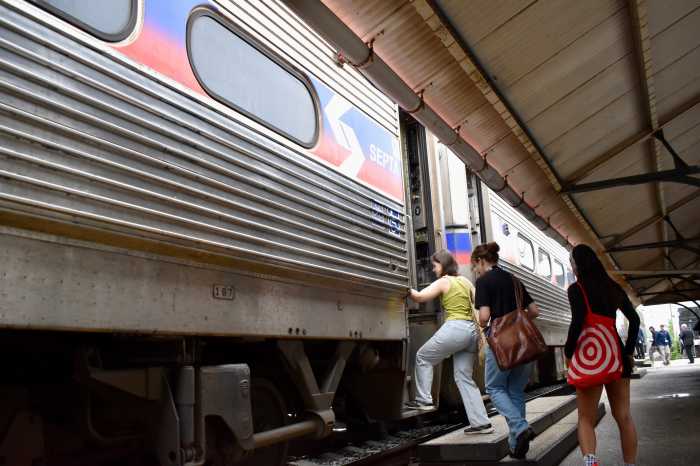SEPTA says riders are happier and crime is declining, as transit officials advocate for additional state funding to avoid a plan to eliminate 50 bus routes and five Regional Rail lines, among other cuts.
Overall satisfaction with the agency reached 3.5 out of 5 in a survey conducted in the first quarter of this year. The score is the highest since SEPTA began soliciting feedback through the questionnaires two years ago, officials said.
“These survey results show that we are prioritizing what matters most to our riders,” Scott Sauer, the authority’s general manager, said in a statement. “Even in the face of a historic funding crisis, we continue to make significant improvements in every customer experience category, and we are committed to doing more.”
The poll asks riders to rate their satisfaction with several aspects of the SEPTA experience, such as employee courtesy, service reliability, cleanliness, security and ease of travel. Previously, the overall satisfaction number has hovered between 3.2 and 3.3.
SEPTA leaders attributed the rise to a renewed dedication to safety, cleaning and reliability.
Serious crime is down in seven out of eight categories this year, following a 33% reduction in offenses in 2024, according to the agency’s data. And there’s been more of a concentration on lower-level infractions.
In the first six months of 2025, transit police issued more than 4,300 citations for fare evasion, up 74% compared to the same time period last year, SEPTA reported July 15. Officers are also writing more tickets for tobacco and marijuana use.
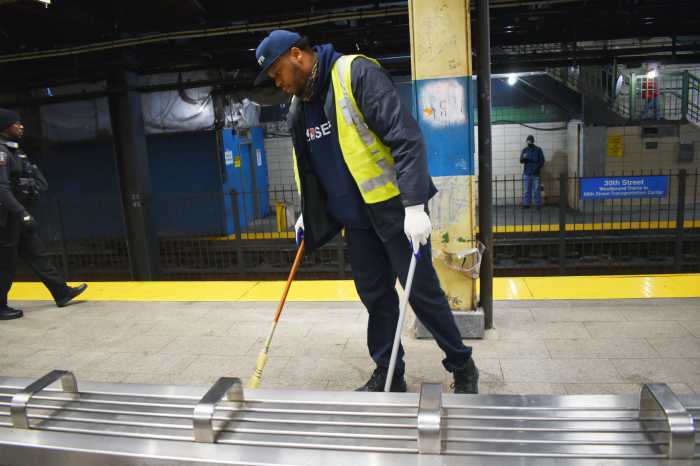
The authority’s cleaning workforce has grown by 150 positions since 2021, to a total of more than 700, officials said. New teams clean Market-Frankford Line cars and buses mid-route and conduct deep cleanings at stations.
Delays and cancelations often result from a driver shortage that stems from the early days of the coronavirus pandemic. SEPTA said hiring for bus operators is up 43% this year, with nearly 60 being hired a month. Regional Rail is coming on-time 87% of the time, up from 81% in the last schedule period, according to the authority.
Ridership averaged more than 768,000 trips a day in May, an increase of 7% compared to May 2024, officials added.
None of the positive developments will mean much if Harrisburg lawmakers and Gov. Josh Shapiro do not reach a deal to boost transit funding, and SEPTA is touting these numbers alongside that backdrop.
The authority’s board late last month approved a budget that would slash service by 45% and significantly raise fare prices to bridge a $213 million fiscal gap. An end to federal COVID-19 relief money and rising costs are responsible for the deficit, officials have said, and transit agencies in Pennsylvania and across the country have faced similar shortfalls.
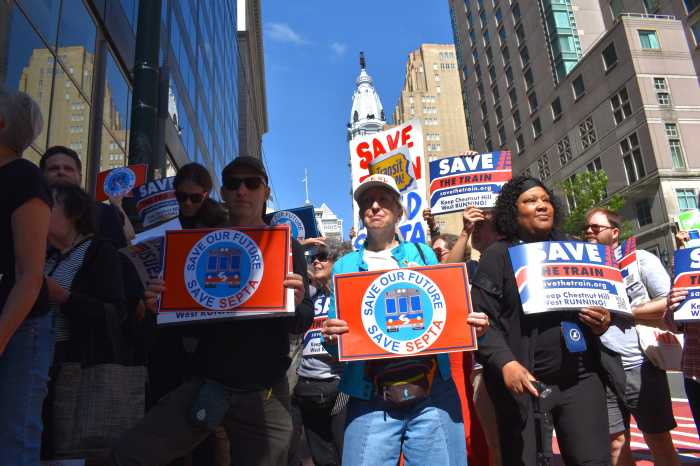
Barring an influx of state dollars, riders will begin seeing changes Aug. 24, when SEPTA plans to axe 32 bus routes; shorten another 16; eliminate Sports Express trains; and reduce frequency on Regional Rail and subway lines.
About a week later, on Sept. 1, the authority intends to implement a 21.5% fare hike, raising the base bus, trolley and subway price from $2.50 to $2.90. The increase would put Philadelphia on par with New York as having the highest fares in the nation, according to SEPTA.
Further austerity measures would go into place Jan. 1, with SEPTA planning to scrap 5 Regional Rail lines, 18 more bus routes and the Broad-Ridge Spur. All rail service would also be curtailed to a 9 p.m. curfew.
Shapiro and Pennsylvania House Democratic leaders have advanced proposals to increase transit funding, though Republicans, who hold a majority in the state Senate, have not supported any of those efforts to date.
Negotiations are ongoing, even though the state’s budget deadline came and passed June 30 without a spending-and-tax agreement.
